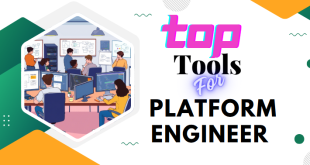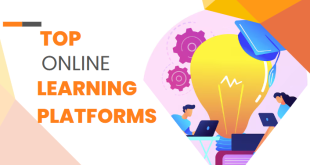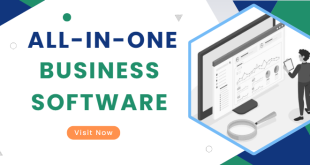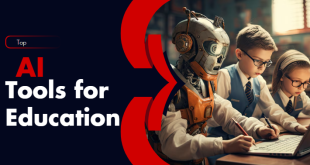Top 10 Data & AI Trends for 2025 + Revolutionary Insights
The world of artificial intelligence (AI) and data is evolving at an unprecedented pace. With groundbreaking innovations, 2025 promises to be a year where these technologies drastically reshape industries, society, and daily life. In this article, we will explore the top 10 trends in AI and data for 2025, providing insights into how these technologies will impact businesses, healthcare, cybersecurity, and more.
AI-Driven Automation
AI-driven automation is not just a buzzword; it’s quickly becoming an essential component of industries worldwide. AI’s ability to automate tasks has led to more efficient operations, from manufacturing to customer service.
AI in Manufacturing
Manufacturers are increasingly using AI to streamline production processes, improve supply chains, and reduce costs. Machine learning algorithms analyze patterns in real-time to optimize workflows and predict equipment failures before they happen.
AI in Customer Service
AI-powered chatbots and virtual assistants are revolutionizing the way companies engage with their customers. By automating responses to frequently asked questions and providing personalized recommendations, these systems save businesses time and enhance customer satisfaction.
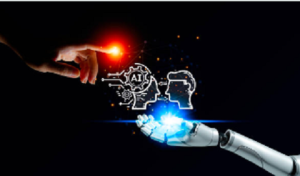
Quantum Computing’s Rise in Data Processing
Quantum computing is no longer a distant dream but a reality that will change how data is processed.
Quantum Algorithms for Faster Processing
Traditional computing systems are reaching their limits when it comes to processing large datasets. Quantum computing, however, uses quantum bits (qubits) to handle far more complex calculations in a fraction of the time.
Real-World Applications of Quantum Computing
From climate modeling to financial analysis, quantum computing is poised to revolutionize industries by providing solutions to problems that were previously unsolvable with classical computers.
AI in Healthcare and Personalized Medicine
AI’s role in healthcare continues to grow, enabling more accurate diagnoses and personalized treatments.
AI for Drug Discovery
AI is accelerating the drug discovery process by predicting how molecules will interact, significantly reducing the time and cost involved in bringing new treatments to market.
Personalized Health Solutions with AI
AI-driven models analyze individual patient data to create personalized treatment plans, ensuring more effective healthcare outcomes.
Data Privacy and Ethical AI
With the growing use of AI, the need for data privacy and ethical considerations has never been more important.
Government Regulations and AI Ethics
Governments around the world are introducing regulations that ensure AI technologies are used responsibly. These laws focus on data protection, fairness, and transparency.
The Future of Data Privacy
In 2025, we expect more robust data privacy frameworks that balance innovation with consumer protection, ensuring users’ personal information remains secure.
AI-Powered Analytics for Business Insights
AI is transforming how businesses collect and analyze data, providing deeper insights that drive more informed decisions.
Predictive Analytics for Decision-Making
AI-driven predictive analytics allows businesses to anticipate future trends, optimize inventory, and tailor marketing strategies.
Automating Data-Driven Insights
By automating the data analysis process, AI ensures businesses can act on insights in real time, improving operational efficiency.
Edge Computing & AI Integration
Edge computing and AI are converging, enabling real-time data processing on devices instead of relying on centralized servers.
The Impact of 5G on Edge AI
5G technology will accelerate the use of edge computing, allowing AI models to operate seamlessly on devices, from autonomous vehicles to smart factories.
Real-World Use Cases of Edge AI
Edge AI is already being used in various industries, including manufacturing, healthcare, and smart cities, where quick decisions are crucial.
Autonomous Vehicles and AI
The integration of AI into autonomous vehicles continues to evolve, promising safer, more efficient transportation systems.
AI Algorithms in Vehicle Navigation
AI algorithms help autonomous vehicles navigate roads, avoid obstacles, and optimize routes in real time.
AI for Safer Driving
AI systems analyze traffic patterns and driver behavior to predict potential accidents and suggest preventive actions, making roads safer for all users.
AI in Cybersecurity
As cyber threats grow more sophisticated, AI is becoming an essential tool in defending against them.
AI-Driven Threat Detection Systems
AI-powered systems can detect unusual patterns in network traffic and identify potential threats in real time, reducing response times and minimizing damage.
Predicting Cyberattacks with AI
Using AI to predict cyberattacks based on historical data and emerging patterns gives organizations a proactive approach to cybersecurity.
Natural Language Processing (NLP) Advancements
Natural Language Processing (NLP) is at the forefront of AI advancements, revolutionizing communication and text analysis.
AI in Translation and Transcription
NLP technologies enable real-time translation and transcription, breaking down language barriers in global communication.
Chatbots and AI-Enhanced Customer Interactions
NLP is enhancing chatbot capabilities, making them more adept at understanding and responding to customer queries with greater accuracy.
AI-Driven Creativity in Arts and Media
AI is not only shaping the future of tech but also transforming creativity in arts and media.
AI in Music Composition
AI is being used to compose original music by analyzing patterns in sound and creating new melodies based on user preferences.
AI in Visual Arts
From generating digital paintings to creating interactive installations, AI is empowering artists to explore new forms of creative expression.
FAQs about Data & AI Trends for 2025
- What industries will benefit most from AI in 2025?
- Healthcare, manufacturing, and cybersecurity will see the most significant benefits from AI advancements in 2025.
- How does quantum computing affect AI?
- Quantum computing can significantly accelerate AI processing speeds, allowing AI models to perform more complex tasks.
- What are the ethical concerns surrounding AI?
- Key ethical concerns include data privacy, algorithmic bias, and the potential for AI to replace jobs.
- How is AI used in cybersecurity?
- AI is used in cybersecurity to detect threats, predict attacks, and automate defensive measures.
- What is the future of AI in healthcare?
- AI will continue to revolutionize healthcare by offering personalized treatment plans and accelerating drug discovery.
- What role does edge computing play in AI?
- Edge computing brings AI capabilities closer to data sources, enabling real-time processing and decision-making.
 Tarauli Best Digital Marketing, Sales, and Finance Tools
Tarauli Best Digital Marketing, Sales, and Finance Tools
